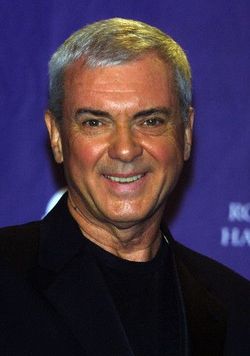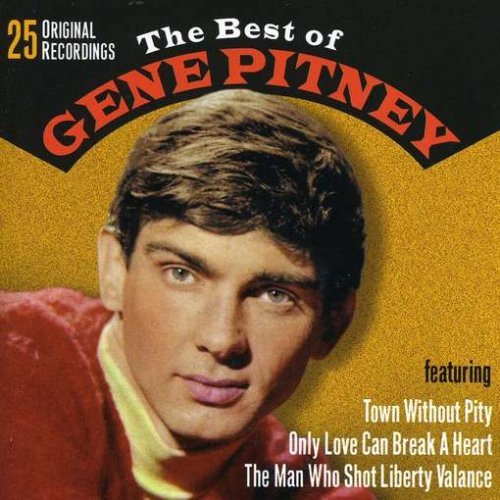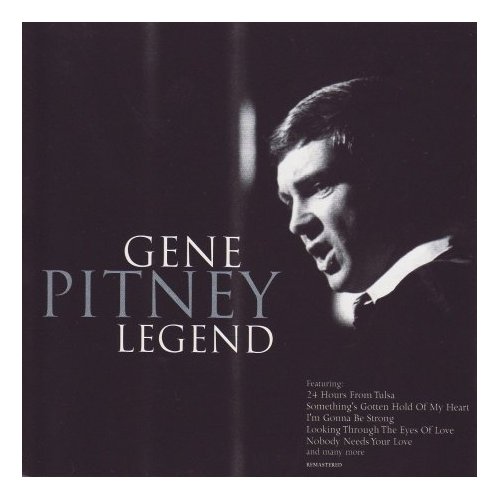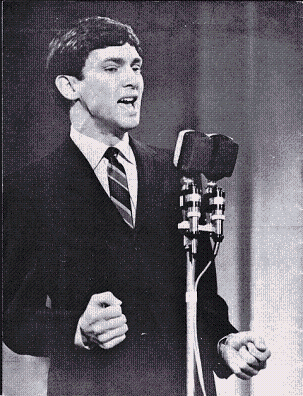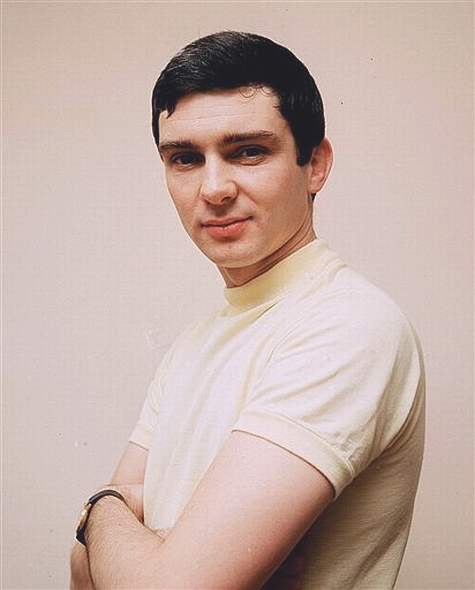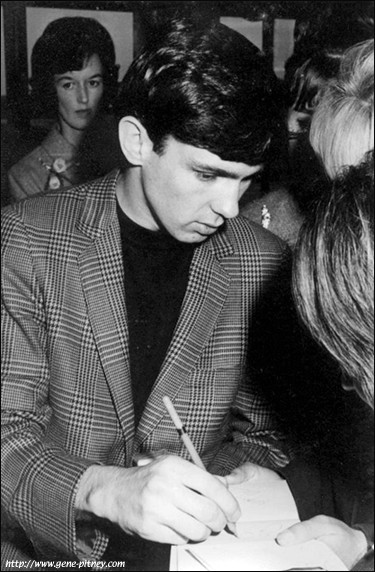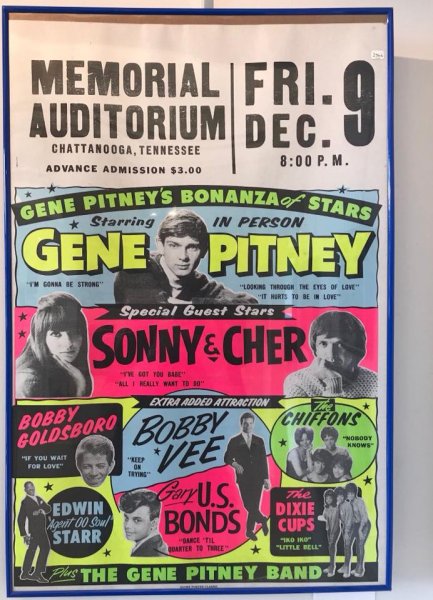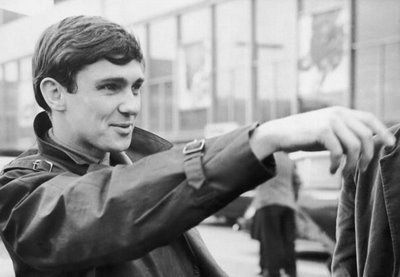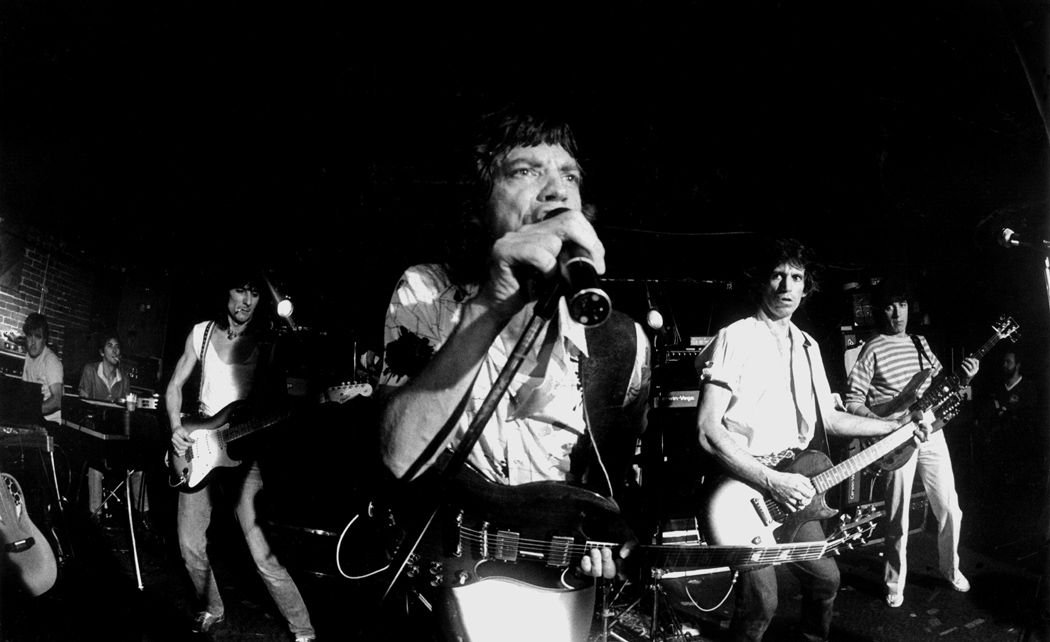Gene Pitney

He was born and raised in New England, but Gene Pitney became so famous in Old England that even some of his biggest fans assumed he was British. And in 2004 – 42 years after the first of his multiple hits reached the Billboard Hot 100 – he became an actual UK citizen.
With a finely polished teen-idol image that disguised the masterful songwriting skills that were the foundation of his nearly 50-year career and an inimitable vibrato that was tear-jerkingly melancholic and irresistibly exaggerated, Pitney recorded 16 top-40 hits in the US (four in the top 10) and 22 in the UK (11 in the top 10). He also wrote chart-toppers for Bobby Vee, Ricky Nelson and The Crystals and collaborated with an wildly eclectic assortment of others including Burt Bacharach, George Jones and The Rolling Stones.
Musical beginnings, First recordings, First charting singles
Born in 1941 in Hartford, Connecticut, Pitney grew up in nearby Rockville (now part of Vernon). He began playing guitar at age 13, followed by piano at 14, all the while immersing himself in the music of the three artists he said influenced him the most: R&B/soul pioneer Clyde McPhatter, country-western boogie trailblazer Moon “King of Hillbilly Piano Players” Mullican and Harlem-based doo-wop quartet The Crows. While in high school, he formed his first band, Gene & The Genials, and developed a unique singing style that The Guardian’s Adam Sweeting once called “a piercing yet panic-stricken tenor.”
In 1958, his senior year, Pitney made his first recordings with The Embers – a North Carolina-based vocal quartet widely credited for originating the beach-music genre – before becoming half of the duo Jamie and Jane with New Haven native Ginny Arnell. In 1959, Decca Records released their singles “Snuggle Up Baby” and “Classical Rock and Roll,” both penned by Pitney. Later that year, Blaze Records released Pitney’s first solo single, “Cradle Of My Arms,” under the stage name Billy Bryan, followed in 1960 by his first single under his own name, “I’ll Find You,” issued by Festival Records. Though he soon established himself as a hit-making marvel, none of those singles reached the charts.
In 1961, things changed spectacularly. After moving to New York City, Pitney signed with Musicor Records – founded by Aaron Schroeder, who had written five #1 hits for Elvis Presley – and recorded his first charting single, “(I Wanna) Love My Life Away,” which he wrote; it went to #39 in the Billboard Hot 100. His follow-up single, “Town Without Pity,” written by Dimitri Tiomkin and Ned Washington for the 1961 film of the same name, reached #13, won a Golden Globe Award and was nominated for the Academy Award for Best Song.
Brill Building, Bacharach/David collaborations
Later in 1961, while Pitney was working as a songwriter at the famed Brill Building alongside others including Carole King, Bobby Vee’s rendition of his song “Rubber Ball” hit #6 in the Billboard Hot 100 and Ricky Nelson’s recording of another Pitney tune, “Hello Mary Lou,” reached #9 in the US and #2 in the UK. Having established himself as a world-class songwriter and a successful recording artist, Pitney began collaborating with the legendary tune-smithing team of Burt Bacharach and Hal David, who eventually wrote three of Pitney’s biggest hits.
In 1962, the first of his Bacharach-David-written singles to reach the top 10 was “Only Love Can Break a Heart,” which hit #2 in the Billboard Hot 100, followed by the second, “(The Man Who Shot) Liberty Valance,” which went to #4 and was the theme song for the John Ford film of the same name starring John Wayne and Jimmy Stewart. The Crystals gave Pitney his first #1 hit as a writer later that year when their rendition of “He’s a Rebel,” produced by Phil Spector, topped the US charts, and Pitney’s single “Half Heaven, Half Heartache,” written by Schroeder, Wally Gold and George Goehring, reached #12 in the Billboard Hot 100 in December.
“The Rockville Rocket,” Caravan of Stars, The Rolling Stones
In 1963, now nicknamed “The Rockville Rocket” since his songs had “rocketed” up the charts, Pitney recorded “Twenty Four Hours from Tulsa,” written by Bacharach and David, which peaked at #17 in the US and #5 in the UK, where he would soon become wildly popular and would perform most often over the next decades. It was Pitney’s third single to reach UK charts and the first to break into the top 20 there. Pitney toured the UK extensively in 1963 and 1964 while appearing in the US as part of Dick Clark’s Caravan of Stars, including a show at Bushnell Memorial Auditorium in Hartford and another at the Palace Ballroom in Old Orchard Beach, Maine.
In 1964, after playing piano on The Rolling Stones’ single “Little by Little” and a few other songs from that band’s debut LP that year, Andrew Loog Oldham, the Stones’ manager, became Pitney’s publicist. Pitney’s recording of the Stones’ “That Girl Belongs to Yesterday” reached #7 in the UK, making it the first Jagger-Richards-penned tune to make the UK top 10, and hit #49 in the Billboard Hot 100, making it the very first Jagger-Richards-penned tune to make that chart. He followed up with two of his own songs, “It Hurts to Be in Love,” which made it to #7 in the Billboard Hot 100, and “I’m Gonna Be Strong,” which reached #9 in the US and soared to #2 in the UK.
George Jones collaborations, Multilingual recordings
In 1965, Pitney co-wrote and recorded two albums with country icon George Jones, and Billboard named them Most Promising Country Duo that year. He toured across the US, UK and Europe, returning to Connecticut in April to perform at the Actor’s Colony Inn in Seymour.
A multilinguist in addition to being a multi-instrumentalist, Pitney also recorded songs in Italian, Spanish and German in the mid-1960s. He was a two-time runner-up in Italy’s Sanremo Music Festival Singing Contest, where judges commented on similarities between his singing style and legendary Italian tenor Enrico Caruso’s.
Fading popularity
In 1966, after his recording of “Backstage” hit #4 in the UK, Pitney’s single of his song “Nobody Needs Your Love” failed to chart in the US but reached #2 in the UK, matching the peak of “I’m Gonna Be Strong” less than two years before. In 1967, his single “Something’s Gotten Hold of My Heart,” written by Roger Cook and Roger Greenaway, reached #5 there. In 1968, however, after making the top 40 with his tune “She’s a Heartbreaker,” Pitney’s singles fell into the lower range of the US and UK charts and his remarkable run of hits seemed finished.
Marc Almond collaboration, Rock & Roll Hall of Fame
In 1974, however, after several of his songs charted modestly, Pitney’s recording of his tune “Blue Angel” sailed to #2 in the Billboard Hot 100 followed by another, “Trans-Canada Highway,” hitting #14. His biggest UK-Europe chart success came in 1989 when EMI’s release of Pitney and synthpop band Soft Cell’s Marc Almond doing “Something’s Gotten Hold of My Heart” hit #1 in the UK, Ireland, Switzerland, Germany and Finland. In the 1990s and 2000s, Pitney appeared almost exclusively in the UK and in 2002 he was inducted into the Rock & Roll Hall of Fame in Cleveland, Ohio.
Death, Commemorative plaque, “Gene Pitney Day”
On April 5, 2006, Pitney died of a heart attack at age 65 in Cardiff, Wales, where the night before he had sung “Town Without Pity” – his first top-20 hit, released 45 years before – as the encore in his final performance (at St. David’s Hall). “Preppy and wholesome-looking, Mr. Pitney sang with perfect diction, making every cry-y-y perfectly clear,” wrote Ben Sasario in a lengthy obituary for The New York Times, calling Pitney’s style “ less baroque than Roy Orbison and more restrained than the Righteous Brothers.”
He had made comments about his death to The Daily Mail in 2003, citing a band for which he had enormous respect. “If I could choose a season in which to die it would be late autumn, when it’s still nice and warm and all the leaves are changing color,” he said. “I’d love The Rolling Stones to come and play at the party – I’m sure they’ll still be touring long after I am dead.”
Pitney was buried at Somers Center Cemetery in Somers, Connecticut. On September 20, 2007, a plaque in his honor was unveiled at Rockville Town Hall and Connecticut Governor Jodi Rell declared that date officially “Gene Pitney Day” in the state.
(by D.S. Monahan)

